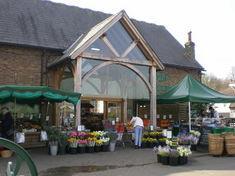
Heading for the local farm shop may not be the greenest option according to a new study which suggests vegetable box delivery should be the consumers’ choice.
The researchers compared trips to a local farm shop with deliveries made by companies that distribute organic vegetable boxes to their customers.
Lead author on the study David Coley from the University of Exeter's Centre for Energy and the Environment said: "Rather than focus on food miles, it would be more meaningful to look at the carbon emissions behind each food item. While the concept of food miles was useful in getting people to think about the issues around carbon emissions and food transport, it's time for a more sophisticated approach.
“People are becoming familiar with the phrase ‘food miles’, but don’t have a very clear understanding of what it means. We need to look more thoroughly at the many factors that lie behind putting food on our tables, before we can say what is better or worse for the environment.”
The study found that if the average car journey made to a farm shop is a round-trip of more than 6.7km, then home delivery was a better option even if the competing farm shop used no lighting, heating or chilling. While a delivery van will travel up to 360 kilometres to deliver an organic vegetable box, this trip will cover a large number of addresses so the carbon emissions per customer will be surprisingly low.
The report, entitled ‘Local food, food miles and carbon emissions: A comparison of farm shop and mass distribution approaches’, acknowledges that there are many other factors in addition to ‘food miles’ that concern consumers. For example, issues around local economics and the environmental impact of different food production methods.
Although the last decade has seen a massive increase in home delivery, mainly as a result of internet shopping, travel for food and household items still represents five per cent of car use.



